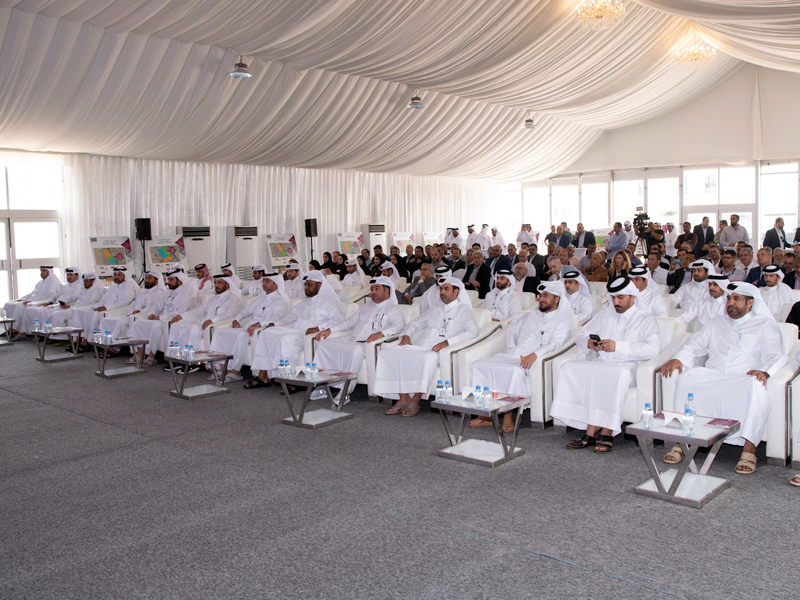Doha, Qatar: The Public Works Authority ‘Ashghal’ has completed infrastructure services for 7,833 plots of citizens’ subdivisions in various areas in the North, West, and South of Qatar. These projects are part of the Local Areas Infrastructure Programme aimed at improving residents’ quality of life and environmental conditions in line with Qatar National Vision 2030. The completed plots are distributed among 21 projects within 12 areas, including projects in the Northern areas such as Al Kheesa, Al Kharaitiyat, and Izghawa, as well as projects in the Western and Southern areas.
The completion of these projects will serve a total of 18,870 residential plots, providing infrastructure services such as an efficient and safe roads network, drainage networks, TSE networks, surface and groundwater drainage, lighting poles, and pedestrian and cycling paths. The infrastructure projects in citizens’ subdivisions have a direct and positive impact on residents’ lives and enable them to build their homes in new areas with integrated infrastructure and advanced roads networks.
Eng. Saoud Al-Tamimi, Roads Projects Department Manager at Ashghal, emphasized the importance of development projects in citizens’ subdivisions and the positive impact they have on residents’ lives. Mubarak bin Feraish Al Salem, Vice-Chairman of the Central Municipal Council, praised Ashghal’s efforts in implementing projects in citizens’ subdivision areas and the positive impact of development work in these areas.
In the Western areas, Eng. Fahad Al-Otaibi highlighted the completion of infrastructure services for 1,015 plots, while in the Southern areas, Eng. Ahmed Al-Obaidly noted the completion of infrastructure services for 1,248 plots. Eng. Abdullah Al Nuaimi, Northern Areas Projects Manager, highlighted the completion of services for 5,570 residential plots in the Northern areas, emphasizing the upgrade and construction of internal roads networks and traffic safety elements.
Special challenges in implementing roads and infrastructure projects in residential areas include the need for a different mechanism due to the densely populated nature of these areas and the high traffic movement. The implementation of works in stages and multiple diversions, as well as the provision of safe corridors for residents, is essential. Communication with residents throughout the project implementation is crucial, and measures are taken to address residents’ inquiries and requests.
Ashghal’s efforts to support Qatar factories and local products through the “Ta’heel” initiative have resulted in the reliance on local sources for the majority of project materials, accounting for about 70% of the total materials used. This initiative has promoted the use of drainage pipes, water, lighting poles and bulbs, traffic signal poles, and other items sourced locally, reducing the reliance on imported materials. By prioritizing local products, Ashghal supports the local economy and contributes to sustainability efforts.
In conclusion, the completion of infrastructure services for citizens’ subdivisions in various areas of Qatar demonstrates Ashghal’s commitment to improving residents’ quality of life and environmental conditions in line with Qatar National Vision 2030. Through these projects, Ashghal provides integrated infrastructure and advanced roads networks, contributing to the overall development and progress of the country. The positive impact of these projects on residents’ lives underscores the importance of continued investment in infrastructure projects for the well-being of the community.


























